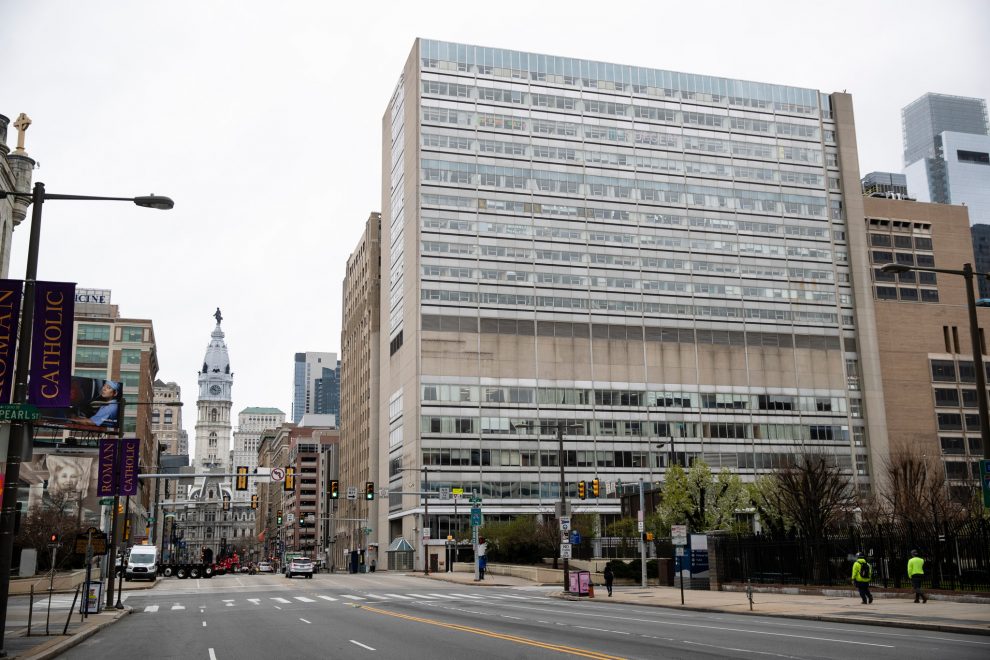Tens of thousands of health care workers across the United States are going without pay today, even as providers in the nation’s hot spots struggle to contain the coronavirus pandemic
This “tale of two hospitals” is a function of clumsy, if well-intentioned, federal and state directives to halt all non-emergency procedures, which appeared at first blush to be a reasonable precaution to limit unnecessary exposure and safeguard staff, beds and equipment.
But instead of merely preserving hospital beds and other resources, this heavy-handed injunction has created a burden of its own design: a historic number of empty beds in systems left untouched by the pandemic.
Those hospitals have resorted to unprecedented levels of furloughs to stave off temporary budget shortfalls, but industry and economic trends point to more lasting outcomes unless immediate action is taken.
At 18 percent of the U.S. economy, health care is a $3.6 trillion industry annually. By barring all elective surgeries, which covers a huge array of operations, like knee reconstructions or even cancer biopsies, hospitals have been denied billions in revenue in just the last month alone.
Outpatient services account for half of all hospital revenue, which means hospitals are now making, and spending, half what they were this time last year.
California woman hospitalized with chemical burns after portable charger explodes while sleeping
High school senior facing more than 300 felony charges in alleged sextortion scheme targeting minors: reports
Bianco says ‘Democrat policy is indefensible’ as GOP candidates top California governor polling
Pima County sheriff warns in NBC interview DNA tech issues in Nancy Guthrie case may take ‘months’ to resolve
Newsom weighs in on social media age restrictions, citing experience as a parent: ‘We need help’
FBI investigates criminal damage to federal ICE warehouse facility in Arizona
Hours After Publicly Appearing With Newsom, CA High Speed Rail Chief Arrested on Suspicion of Spousal Battery
Trump pulls endorsement from GOP lawmaker over alleged lack of support for administration’s tariff agenda
Is a Donald J. Trump Airport on Its Way? Big Move from Trump Family Suggests It’s Coming
The Sting: How a DEA Supervisor Was Caught Getting Non-Americans Into the Country as Fake Law Enforcement Assets, According to Court Docs
Nancy Guthrie disappearance fuels rise of ‘mom detectives’ swapping tips and losing sleep
Colombian nationals allegedly ran fake law firm, impersonated federal judges to defraud migrants out of $100K
Mamdani promotes NYC where ‘every family can afford a home,’ rips ICE’s ‘cruelty’ amid budget blowback
Trump reveals his ‘new hero’ Supreme Court justice after tariffs ruling
Trump raises global tariff to 15%
It’s not surprising, then, that the industry shed a record 43,000 health care workers in the first month of this crisis. Experts expect equal or greater layoffs this month, when the sustained forbearance has made revenue even more urgent.
Even before this crisis, one in four rural hospitals were vulnerable to closure. Now, many of these rural systems have more empty beds than ever before.
It doesn’t take an economist to understand the underlying economics here. And it won’t just be rural health care that will suffer—hospitals in every corner of the country might close for good.
The coronavirus will continue to spread throughout the United States, but our ability to treat and prevent its transmission will be severely constrained if as-yet-unaffected hospitals resort to mass layoffs. We need to sustain robust staffing in every corner of this country—and prohibiting elective surgeries outright is wildly counterproductive.
Understand: The availability of clinicians in hot spots like New York City, New Orleans and Detroit is no more an urgent public health crisis than health care staffing everywhere else because when this is over these patients will still require dialysis, chemotherapy and other life-saving treatments.
Health care has historically weathered economic downturns in stride because people get sick even in depressions, but this is unlike previous slumps. In the past 30 years, there have been only four months where the industry destroyed jobs. What used to be the worst case, in 2003, was just one-quarter of the losses experienced in March.
Hospitals are in the business of treating patients, but few are any more—which means more furloughs are ahead unless and until hospitals are allowed to perform their basic function: provide health care.
California woman hospitalized with chemical burns after portable charger explodes while sleeping
High school senior facing more than 300 felony charges in alleged sextortion scheme targeting minors: reports
Bianco says ‘Democrat policy is indefensible’ as GOP candidates top California governor polling
Pima County sheriff warns in NBC interview DNA tech issues in Nancy Guthrie case may take ‘months’ to resolve
Newsom weighs in on social media age restrictions, citing experience as a parent: ‘We need help’
FBI investigates criminal damage to federal ICE warehouse facility in Arizona
Hours After Publicly Appearing With Newsom, CA High Speed Rail Chief Arrested on Suspicion of Spousal Battery
Trump pulls endorsement from GOP lawmaker over alleged lack of support for administration’s tariff agenda
Is a Donald J. Trump Airport on Its Way? Big Move from Trump Family Suggests It’s Coming
The Sting: How a DEA Supervisor Was Caught Getting Non-Americans Into the Country as Fake Law Enforcement Assets, According to Court Docs
Nancy Guthrie disappearance fuels rise of ‘mom detectives’ swapping tips and losing sleep
Colombian nationals allegedly ran fake law firm, impersonated federal judges to defraud migrants out of $100K
Mamdani promotes NYC where ‘every family can afford a home,’ rips ICE’s ‘cruelty’ amid budget blowback
Trump reveals his ‘new hero’ Supreme Court justice after tariffs ruling
Trump raises global tariff to 15%
Because one in eight Americans is employed in health care, the fastest way to get Americans back to work is to allow hospitals to treat patients. Allowing these workers to get back on hospital payrolls will also save the federal government as much as $2 billion a day through safety net benefits.
When we’ve defeated the coronavirus, chronic disease will still be there, lurking in our communities. But health care’s footprint—large and small, rural and urban alike—will be forever changed by this crisis unless our government gets out the way and allows doctors to go about their business of healing patients.
After all, it’s doctors and patients who should make decisions about care, not bureaucrats.
Rick Jackson serves as chairman and chief executive officer of Jackson Healthcare, the third-largest health care staffing company in the United States. Jackson Healthcare staffs over 3,000 U.S. hospitals with clinicians and treats 10 million patients annually.
Story cited here.
























